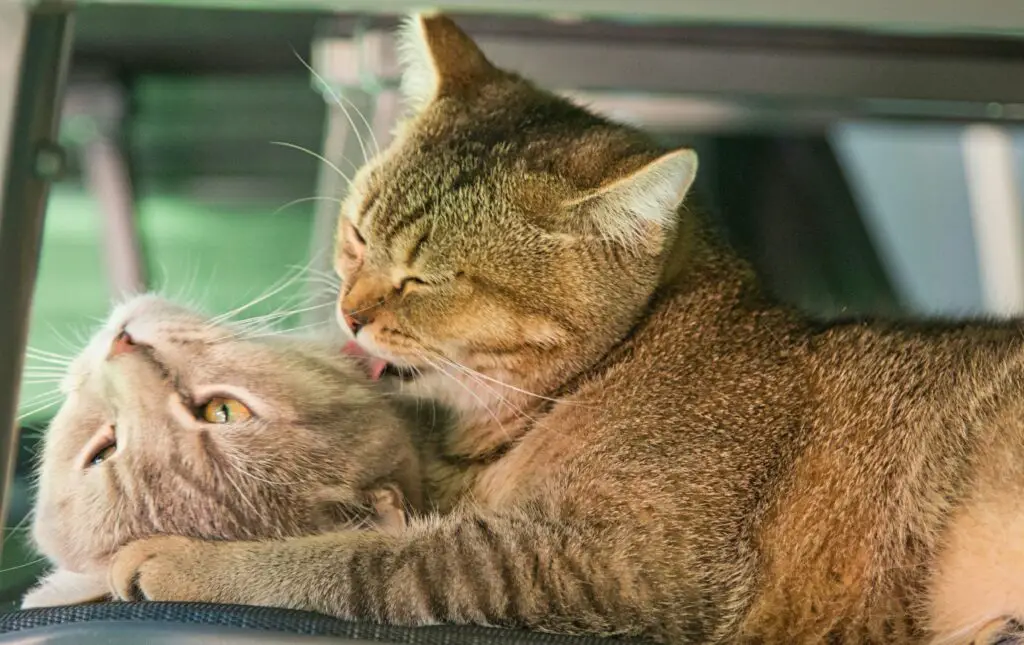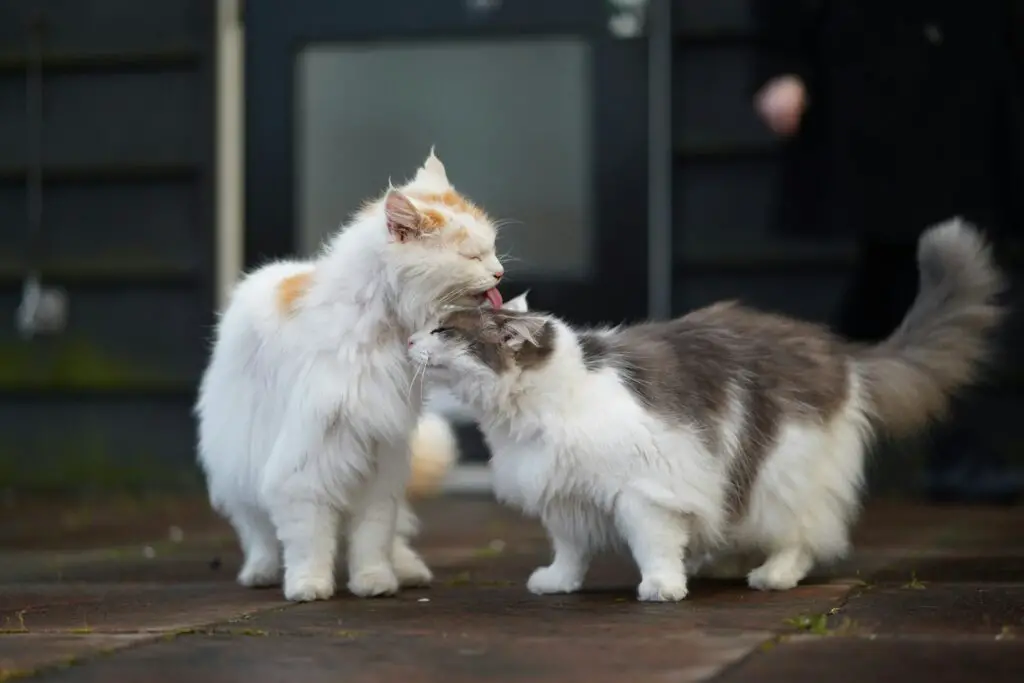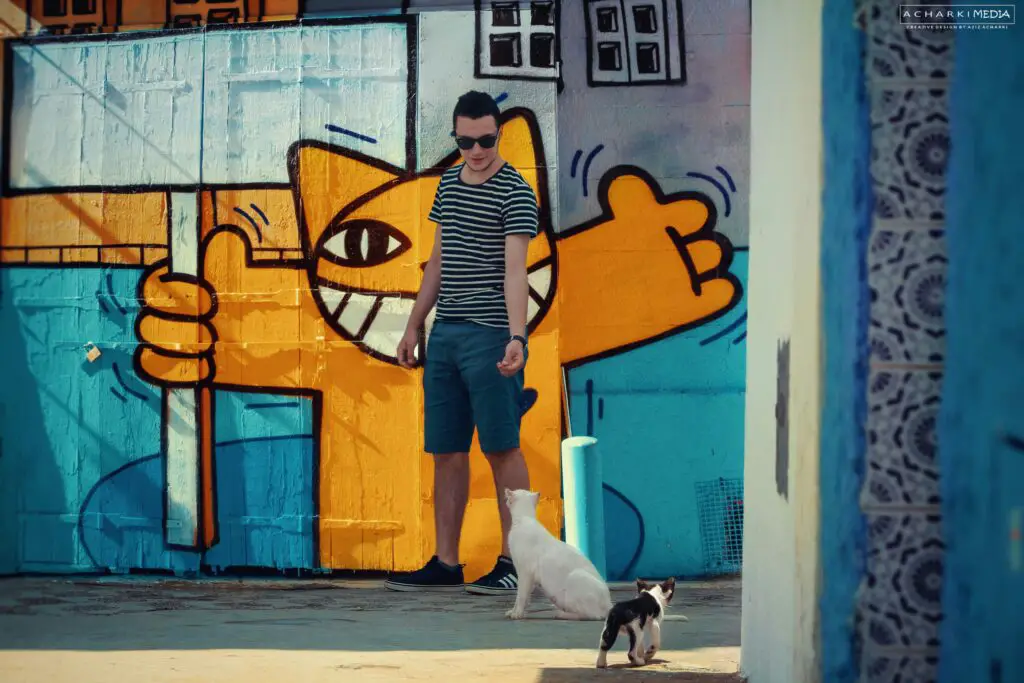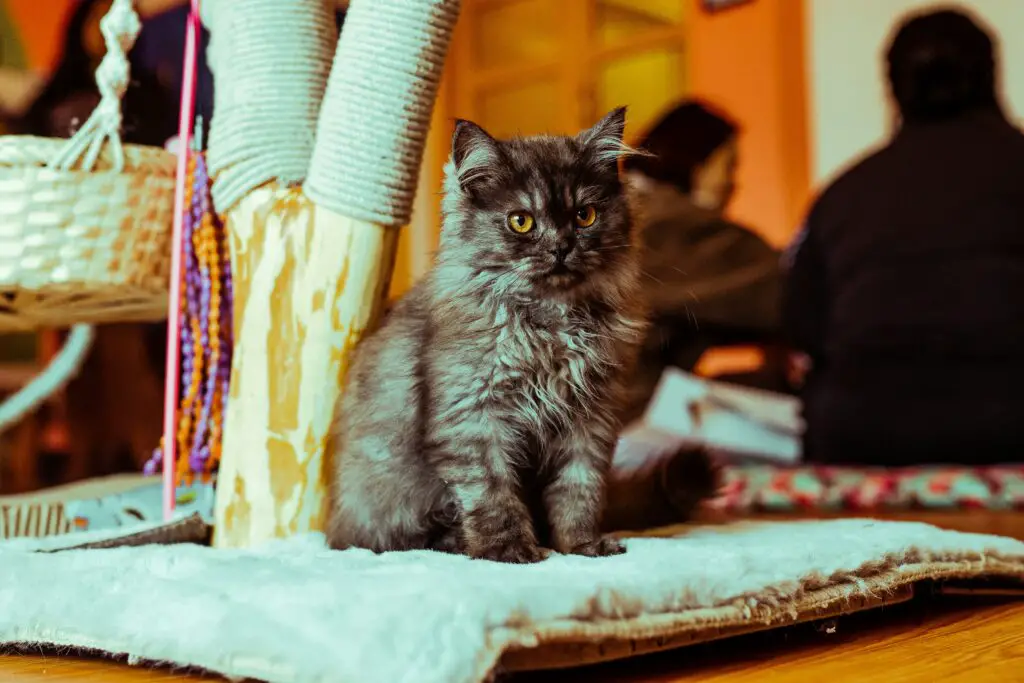Although the exact reason why cats lick people is still unknown to science, there are a few theories. Although we frequently associate kisses and licks with dogs, our cats also lick! Cats may lick you for a variety of reasons, such as basic grooming, affection, or attention seeking. Because cats’ tongues can be rough on the skin, some cat parents might not mind the odd lick, but others might find it uncomfortable.
These are a few of the causes of cat licking. In addition, if your cat starts licking you inappropriately, we’ll discuss how to stop it.
Your Cat Is Trying to Show You Love

It’s possible that your cat is engaging in affiliative behavior, which is a kind and giving behavior. Allogrooming is the practice of cats grooming one another in addition to mothers grooming their kittens. Because grooming helps cats maintain their social bonds, your cat might groom you in return to strengthen your bond. It’s possible that your cat is grooming you in the same way that a mother cat grooms her kittens. The rough tongue of a cat is partly an adaptation to aid in self-grooming; the small spines on the tongue are excellent at dislodging tangles and loosening matted fur. It’s normal to feel a little nipped during a cat licking session. A cat’s grooming routine includes both biting and licking in order to help them get rid of tangles. When your cat bites, it usually does no harm.
If your cat licks you and you don’t like it, you can try using a treat or toy to divert her attention.
Your Cat Is Seeking Attention
You have probably unintentionally rewarded your cat for licking you by talking to them, petting them, or engaging in some other interaction, so your cat may have quickly learned that licking gets attention. Cats lick their owners primarily as a means of establishing a bond and demonstrating affection. A cat licking you, in fact, indicates that they consider you a member of their family.
Although licking you is a sign of affection from your cat, it’s not how they show their love most of the time. Cats will also rub up against you, “make biscuits,” and, oddly enough, follow you to the bathroom as ways to get your attention.
Your Cat Is Recognizing You as a Member of the Collective
Mama cats may lick their kittens in order to establish a recognizable group scent. Cats mark objects and other animals with their scents as a means of communication. In a similar vein, your cat might lick you to recognize you.
Your Cat Seems To Be Acting Like A Kitten
At nursing, kittens knead and cuddle. Your cat may have started licking you to get the comfort that comes from nursing if they were weaned too young. In this scenario, when your cat licks you, they might also knead and purr. Is it an act of territoriality? Maybe.
A cat uses its saliva to spread their scent when they lick you. This identifies you as a member of their family! In this manner, even before they see you, they will be able to sense your safety and reliability when you enter a room or enter the house.
In addition, cats may mark their territory with urine, by rubbing up against you or other objects in the area (such as your carpet or backyard for example).
Your Cat Likes Your Taste

Your cat might lick your skin or hair in an attempt to explore intriguing smells or scents, like those of a tasty shampoo, lotion, or other topical product. However, your cat may suffer from this and even become poisoned. After using a topical treatment, avoid letting your cat lick you because some products may contain toxic ingredients.
Cats may find sugar and salts found in human sweat to be attractive. Cats can smell in two different ways and have a large number of scent receptors. In addition to using their noses, they also use the vomeronasal organ, which is located on the roof of their mouths, to taste and analyze smells.
Like other animals, cats use their mouths to investigate their surroundings. By licking you, your cat is utilizing their sense of smell and taste to learn more about you, other cats, and their surroundings!
Your Cat Is Anxious
Licking could be an indication of a displacement behavior, which is a stress-reduction tactic used by cats. Excessive self-grooming is typically caused by stress, but you could also get licked.
Find out if there are any loud noises or guests in your home that could be triggering the licking. If you don’t treat your cat’s anxiety, the licking may become a compulsive behavior that eventually takes over your cat’s life.
Your Cat Has a Medical Issue
A medical issue may cause your cat to lick you, objects in their surroundings, or both. Licking may result from discomfort, pain, or nausea. See your veterinarian if your cat is licking excessively or if this behavior has just started.
Why Does My Cat’s Licking Hurt Myself?
A cat’s tongue is more akin to sandpaper than a soft sponge, as anyone who has been tongue-bathed by one will attest. This is due to the hundreds of tiny, firm, backward-facing spines called papillae that cover your cat’s tongue. These spines aid in cleaning your cat’s hair coat of debris and loose fur and coat it in saliva to keep your cat cool.
Is It Safe To Let Your Cat Lick You?

While taking a bath from your cat is generally safe, there are a few things to be aware of. Cats’ mouths are home to bacteria that, should they lick an open wound, could cause an infection either locally or nationally. Those with weakened immune systems are most vulnerable.
Although it is extremely unlikely, avoid letting your cat lick your face or any cuts on your skin just to be safe.
When your cat licks certain medical ointments, it might also be dangerous for them. Tell your veterinarian about any products you use on your skin or hair so they can assess whether they could be harmful to your cat.
Ways to Prevent Your Cat From Licking You

You might find your cat’s licking to be bothersome or uncomfortable, regardless of the reason behind it.
Never use physical punishment of any kind, such as scolding, water cannons, or bitter spray. This could weaken your relationship with your cat and increase their anxiety, which could make them lick more frequently.
Here are some suggestions to reduce the licking in its place:
When interacting with your cat, cover your skin with a small towel or garment with long sleeves. Once your cat begins to lick you, get up and move on. Ignoring your cat’s attention-seeking licking should stop the behavior from occurring. Even when your cat licks you, don’t completely ignore them. After a week, if the licking doesn’t stop, your veterinarian should be consulted as there may be another reason behind the behavior.
Instead, give your cat a food puzzle or a cat toy to occupy their attention. As soon as your cat plays with the toy, get up and move on.
Reward your cat with play, petting, or praise when they interact with you without licking. This will reinforce the behavior. Provide lots of environmental enrichment for your cat. To create novelty, buy a variety of toys and switch them around every few days. Give your cat vertical areas like cat trees and perches, and spend at least fifteen minutes a day, three times a day, interacting with your cat.
Your veterinarian should examine your cat if their excessive or persistent licking doesn’t seem to be the result of an emotional or medical issue.
